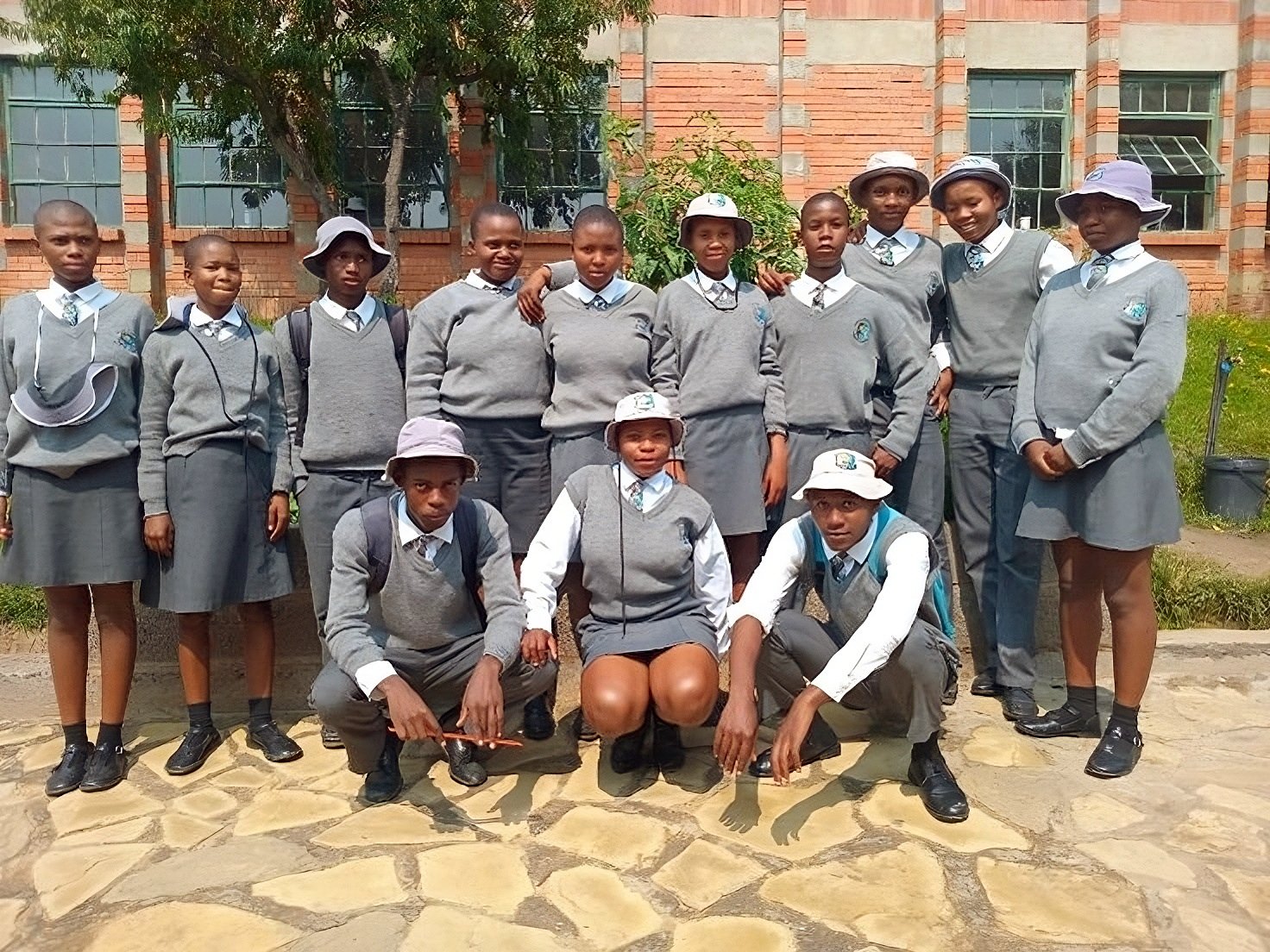
Obert Theko, Principal Ikaheng High School
Youth Leadership at the Heart of Education Reform: How Lesotho’s Students Are Shaping a More Inclusive Future
Students across Lesotho are starting to take an active role in shaping what and how they learn. From an education system often disconnected from learners’ lived experiences, interests, and future aspirations, youth voices are now driving reforms that make education feel relevant.
For years, students in Lesotho in Southern Africa have had little say in the curriculum and conditions that shaped their learning. Despite progressive policies like the Education Act No. 3 of 2010 and the Child-Friendly School Standards — both of which call for student representation in school governance — many schools still lacked functional student leadership structures or mechanisms to include learners in decision-making. Without platforms, training, or adult buy-in, students remained sidelined.
A 2024 study by Ts’epang Joel Matsietsa, a Rotary Peace Fellow at Makerere University, compiled findings from surveys with over 150 students and 44 teachers across Maseru, Leribe, and Mafeteng. Across the board, students raised concerns about being excluded from school decisions – an exclusion that left them with no say on issues such as disability inclusion, access to sexual and reproductive health rights, and the persistence of corporal punishment, and with no influence on curriculum design.
“We are expected to follow school rules, but we are never consulted when those rules are made. That’s not fair. We are the ones who live by them every day,” said one of the respondents, Matsoso Matsoso from Sacred High School.
According to Lesotho’s Ministry of Education and Training (MoET) and UNESCO, this disconnect has made students less motivated and is one of the reasons why many leave school early or without having gained the skills or knowledge they needed. “Many learners leave school before completing secondary education, with dropout rates particularly high in rural areas. The curriculum does not always align with learners’ realities, or the skills demanded in the job market.” (UNESCO Institute for Statistics & Lesotho Education Sector Plan (ESP) 2016–2026.)
But in early 2024, something shifted.
A New Chapter: Student Mobilization Begins
What began as a pilot initiative at Johnson Baker High School in Mafeteng — one of the districts hardest hit by youth-related violence — quickly ignited a broader movement. Spearheaded by Young Christian Students (YCS), this grassroots response blossomed into a nationwide student-led campaign for inclusion, peacebuilding, and education reform.
“Today, thanks to a bold, youth-led movement, students are often participating in curriculum design, but they are more than that — they are leading efforts to make education more inclusive, relevant, and impactful,” says Dingiswayo Bohale, who is a Youth Member at Sacred Heart High School in Lesotho.
With technical, financial backing, and advocacy support from the Lesotho Council of NGOs (LCN) through Education Out Loud, in 2024, Young Christian Students launched a nine-month program to train students in leadership, mediation, and rights-based advocacy. Some of the selected schools were chosen due to their history of student involvement in strikes over the past years. Additionally, the district of Mafeteng was targeted because of the increasing levels of unrest in the area.
“We chose topics such as mediation and negotiation because we believe students need the tools to engage constructively and peacefully with their teachers and school leadership. Mediation, in particular, was included to equip students with non-violent means of conflict resolution, helping them transform frustration into dialogue rather than disruption,” says Ts’epang Matsietsa from YCS.
“Being young doesn’t mean we don’t have solutions”
The movement involved hundreds of secondary school learners, ages 14 to 20, from both urban and rural settings. Many were orphans, students with disabilities, or youth facing economic hardship. They shared a vision: to transform their schools into inclusive, peaceful, and learner-driven environments.
From dialogue sessions to democratic elections of student leaders, a structured model began to emerge: student councils and committees were formed. Youth-led forums opened space for honest conversation with teachers and administrators. Peace clubs and mediation groups started resolving conflicts at the school level. And young people, many from under-resourced and marginalized backgrounds, became catalysts for change in their communities.
“This program showed us that being young doesn’t mean we don’t have solutions. It gave us confidence and tools to advocate for ourselves and others,” says Ts’episo Rahebe, student at Ikaheng High School.
Alongside LCN and YCS, school principals and teachers were consulted and trained, creating a more enabling environment for youth leadership. Stakeholders collaborated closely to integrate these efforts into broader civil society platforms like NGO Week, amplifying student voices at the national level.
“We had to unlearn the idea that students are only here to listen. They can teach us too — about empathy, about fairness, and about the future they want,” says Obert Theko, Principal at Ikaheng High School.
Youth-led forums and peace clubs paves the way
Key was also the creation of platforms where students could be heard. Through the formation of student-led clubs, leadership development programs, and school-wide dialogues, learners gained the confidence and tools to advocate for their needs. Teachers, school leaders, and community organizations supported this shift, fostering open collaboration between students and decision-makers.
Workshops and training sessions helped students develop leadership skills and understand their rights, while inter-school meetings allowed for the exchange of ideas and strategies. These activities helped bridge the gap between education policy and classroom realities, ensuring that reforms were rooted in the lived experiences of learners.
“Working with these students reminded us why education matters — not just to pass exams, but to build peaceful communities,” says Maseleso Mphonyo, who is Youth, Education and Health AIDE with Lesotho Council of NGOs (LCN).
Of course, challenges remain. But Lesotho’s experience offers compelling lessons for education systems globally. It shows that meaningful student participation is not an optional add-on but a foundational element of a relevant, equitable, and sustainable education system. As Ts’epang Matsietsa, Rotary Peace Fellow and youth inclusion advocate, puts it: “When students are given the tools and platforms to lead, they stop being recipients of education and become its architects.”
Lesotho Council of NGOs
- Lesotho Council of NGOs (LCN) is the national umbrella body representing civil society organizations across the country.
- Established in 1990 to strengthen coordination, advocacy, and capacity within the NGO sector, LCN works to amplify citizens’ voices in national development processes and promote inclusive governance.
- In the education sector, LCN advocates for inclusive and equitable learning opportunities for all learners while promoting social accountability within education systems.
- Through its partnership with Education Out Loud, LCN leads national advocacy efforts aimed at strengthening civil society participation in education policy processes and ensuring that learners — particularly youth — actively contribute to shaping decisions that impact their futures.
This blog is curated by Education Out Loud, but the views expressed are those of the authors alone.

 Dingiswayo Bohale
Dingiswayo Bohale